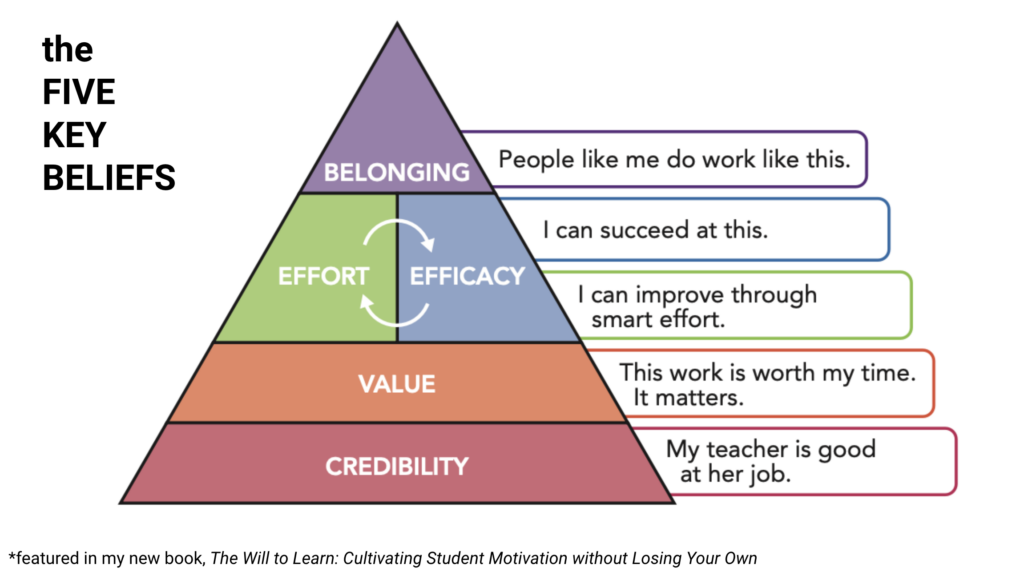August is always my busiest month as a PD guy, and so this past month I ended up traveling half a dozen times across the country. When traveling alone, I like to pass the time sometimes by watching movies or shows that folks I respect have recommended to me. One of the shows I watched this past month was FX's The Bear.
(If you're not familiar with the show, this 14-minute analysis of its craft is excellent. The gist is this: Carmy is a world-renowned chef, and his brother dies and leaves him a Chicago beef restaurant, and now Carmy is trying to bring his world-renowned chef experience to a dysfunctional, small restaurant.)
At one point in the show, protagonist Carmy is talking with pastry chef Marcus while on break together. Marcus is upset because he made some critical mistakes earlier that day that affected the whole kitchen.
Here's the dialogue. (Or here's the short clip, if you prefer that. Pardon the fruity language.) Afterwards, I'll close with a few connections to our work with students.
- Carmy: Chef, you all right?
- Marcus: I [messed] up. I was behind on cakes, I tried to speed it up, and I blew the fuse.
- Carmy: This job's insane… You know, it can go from chill to unchill in a second. But you gotta stay ahead on your work, that's just that.
- Marcus: Heard. My first job was McDonald's. You don't get to be creative. You just work with robots and everything's automatic and fast and easy. I won't make a mistake again.
- Carmy: Yeah, you will. But not 'cause you're you. Just 'cause [stuff] happens.
After this, Carmy goes into a brief story about how he made a stupid mistake the day after he won a prestigious chef's award.
What's this to do with teaching?

In terms of The Five Key Beliefs, there are a couple brilliant teacher moves here that Carmy is using.
- He doesn't degrade Marcus for his mistake. Instead, he normalizes the mistake by saying that the job is hard and that's why you have to stay ahead on your work. Rather than emphasizing how bad the mistake was (and it was a bad mistake that affected everyone badly), Carmy can see that Marcus is already taking it hard, and so he contextualizes the mistake in light of the reality that the work is very challenging.
- This helps Marcus with the Effort, Efficacy, and Belonging beliefs.
- When Marcus indicates a commitment to not make a mistake again, Carmy plucks the weed quickly. When learners adopt an attitude of, “In the future, I'll do perfectly,” they are setting themselves up for failure. If you define success as not making mistakes, your Efficacy will be a fragile and toxic thing.
- Carmy depersonalizes Marcus' future mistakes. Again, Carmy sees that Marcus is taking his mistake very hard. Carmy doesn't try to take this away — he gives Marcus space to feel what he's feeling — but he also can see that part of what Marcus is doing in his heart is the trip from “I failed” to “I'm a failure.” You're not going to make a mistake again because you're you, Carmy says. You're going to make a mistake again because that is a normal thing that can happen. And then Carmy gives a specific example from his own career that efficiently illustrates that even top chefs make egregious errors.
- Major Belonging belief boosters here.
All of these things are critical for a Beliefs-rich classroom.
- You can't degrade students for failure and instead must authentically normalize failure as part of the learning process. Don't be generic here; don't give sweeping passes for failure. Instead, be very specific about what kinds of failure can happen for a given assignment, and be very specific on how that failure can be avoided in the future. Many teachers fail here and end up giving students generic platitudes about how failure is okay. That's not what Carmy is doing for Marcus.
- You have to clearly define success for your students, again and again and again. In the minds of young people, success tends to be both cloudy and unrealistic. I write about this at length in Strategy 8: Define Success Wisely, Early, and Often in my new book.
- You have to help students depersonalize their mistakes. I love Carmy's language — you'll make mistakes again, but not because you're you, just because [stuff] happens. If I'm a teenager in your class and my identity is on the line with each new assignment, good luck getting me to give it my all. That's too much risk.
So, The Bear is intense, and your mileage with the show will vary.
But this little pep talk scene? It's golden.
Best,
DSJR
mgeoghegan22 says
Love this! The show is tough and stressful, but this pep talk is gold! Great connection with learning! Thanks, Dave!
Dave Stuart Jr. says
Honestly Marty, I love the show! It’s raw but beautiful in its way.